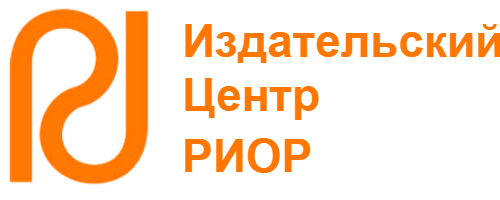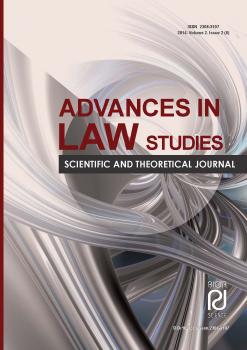Саратов, Саратовская область, Россия
Пенза, Россия
Юридическая политика как новое направление в юридических науках состоит в том, чтобы помочь в преобразовании правового механизма государства и всей юридической жизни. Это стало чрезвычайно важным из-за сложностей постмодернизации общества при обстоятельствах эрозии государственного суверенитета, интенсивной коммуникации и распространения юридической информации, гражданской причастности к законодательному процессу. Но только применение сравнительного метода в форме сравнительного права, сравнительного изучения государства, сравнительной политологии может сделать юридическую политику более эффективной и точной.
правовая политика, сравнительное правоведение
Legal Policy is a rather new direction in Legal Sciences. This is the efforts of a state and civil society to transform legal mechanism of the state and all legal life. Among the actors of Legal Policy in Russia are the President, the Parliament, the Government, the Constitutional Court, the Supreme Court, the Ministry of Justice, the institutions of civil society, etc.
Legal Policy has become important thanks to extreme complexities of the post modernizing society. Our society beginning with the 1980’s has demanded much more farsighted strategic policy under globalization, erosion of state sovereignty, appearance of new actors such as transnational monopolies and international non-commercial organizations. More differentiated and flexible civil society is waiting that its opinion is to be taken into account more fully. Much strain upon law life under information revolution stimulates systematization of law.
So all of the challenges of the post modernization epoch (see scheme 1) lead to coordinated, much sophisticated policy concerning law innovations. This policy aims at forecasting of post modernization challenges and ways of adaptation to them.
In Russia problems of legal policy started to be studied by Saratov branch of the Institute of State and Law of Russian Academy of Sciences. The Lectures and monographs has been published [1]. The concept of Legal Policy up to 2020 has been prepared [2]. Special magazine “Legal Policy and Legal Life” stimulates further research work. But how to make Legal Policy more effective?
It’s clear that new academic discipline and new sphere of research must be based upon some principles. The first among them is realism which contrasts with dogmatism, politically customary illusions. For example, is the court system the best among branches of power? Usually they say that it is, that the courts are the most unbiased organs.
But in the real life it depends upon concrete judges and effectiveness of division of powers in concrete state. The second principle is dynamism.
1. Russian Legal Policy / ed. by N.I. Matuzov and A.V. Malko. Moscow, 2003; Russian Legal Policy: Theory and Practice: Monograph / ed. by N.I. Matuzov and A.V. Malko. Moscow, 2006; Legal Policy in the Russian Federation: Regional Level: Monograph / ed. by A.V. Malko. Tambov, 2008; Malko A.V. Theory of Legal Policy. Moscow, 2012, etc.
2. Legal Policy: Dictionary and the Project Concept / ed. A.V. Malko. Saratov, 2010.
3. Special Report State Capitalism. The Visible Hand // The Economist. 2012. January 21st-27th. P. 1-18.
4. Government by (all) the people // The Economist. 2011. October 27th. P. 63.
5. Sief van Erp. The Methodological Impossibility to Create Autonomous European Law // Electronic Journal of Comparative Law. Vol. 14.2. October 2010.
6. Malko A.V., Salomatin A.Yu. Theory of State and Law. Innovative textbook. Penza, 2012. P. 89.
7. Lafitsky V.I. Comparative Law in the images of law. V. I. Moscow, 2010. P. 12-68.
8. Kresin A.V. Formation of the Theoretical and Methodological Foundations of Comparative Law in the Works of Paul Johann Anselm von Feuerbach // Comparatica-2011: Comparative Law, Comparative State Theory, Comparative Politics. International Methodical and Scientific Yearbook. Penza, 2012.
9. Malko A.V., Salomatin A.Yu. Comparative Law. Manual. Moscow, 2008. P. 79.
10. Salomatin A.Yu. Comparative Legal Policy as a Tool of Reforming of Legal System: Public Lecture. Kiev: Lviv, 2012.
11. World Jury Systems / ed. by N. Vidmar. Oxford, 2003. P.V.
12. Ibid. P. 2-3.
13. Legal Monitoring. Scientific and Practical Manual / ed. by Yu.A. Tikhomirov, D.B. Gorohov. Moscow, 2009. P. 13.
14. Alekseev A.N. On the Concept and Spirit of the Legal Monitoring // Russian Justice. 2011. № 10. P. 2-3.
15. Danneman G. Comparative Law: Study of Similarities or Differences? // The Oxford Handbook of Comparative Law / ed. by M. Reimann and R. Zimmermann. Oxford, N.Y., 2008. P. 387-388.
16. Malko A.V., Salomatin A.Yu. Social and Legal Monitoring as a Tool to Promote Russia’s Legal Reform // «Black Holes» in the Russian Legislation. 2007. № 6. P. 464.
17. Grevtsov Yu.I. Sociology of Law. St. Petersburg, 2001. P. 33-34.
18. Tikhomirov Yu.A. Behavior in Society and Law // Journal of Russian Law. 2011. № 2. P. 5.
19. Zorkin V. Enforcement as a Strategic Problem // Law and Enforcement in Russia: Interdisciplinary Studies / ed. by V.V. Volkov. Moscow, 2011. P. 23-24.
20. Baldwin J., Davis Y. Empirical Research in Law // The Oxford Handbook of Legal Studies / ed. by P. Cane, M. Fushnet. N.Y., 2003. P. 897.
21. Grishkovets A.A. On the Question of the Reform of the Public Administration (Organizational and Legal Aspects) // State and Law. 2012. № 2. P. 31.
22. Bekhrus Kh.N. Comparative Legal Research in an Era of Globalization // Foundations of Comparative Law. Methods and Typologies / ed. by William E. Butler, O.V. Kresin and Yu.S. Shem shuhenko. L., 2012.

















